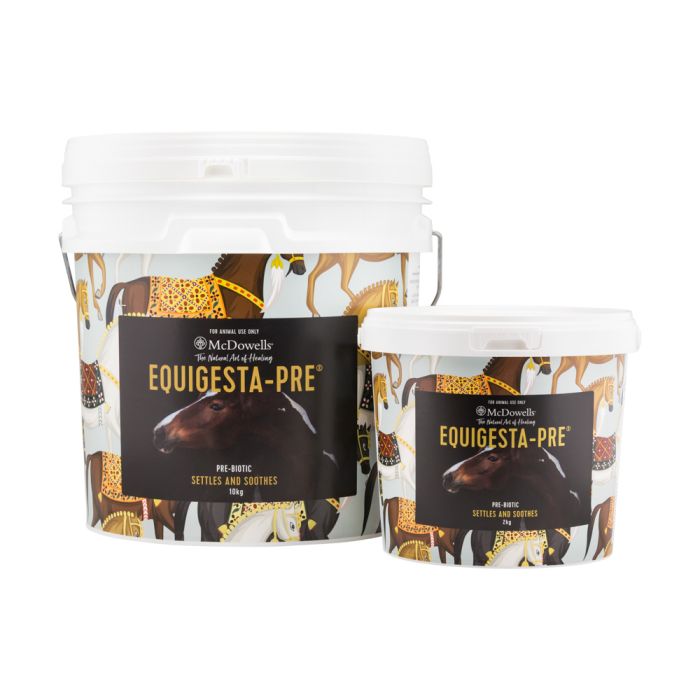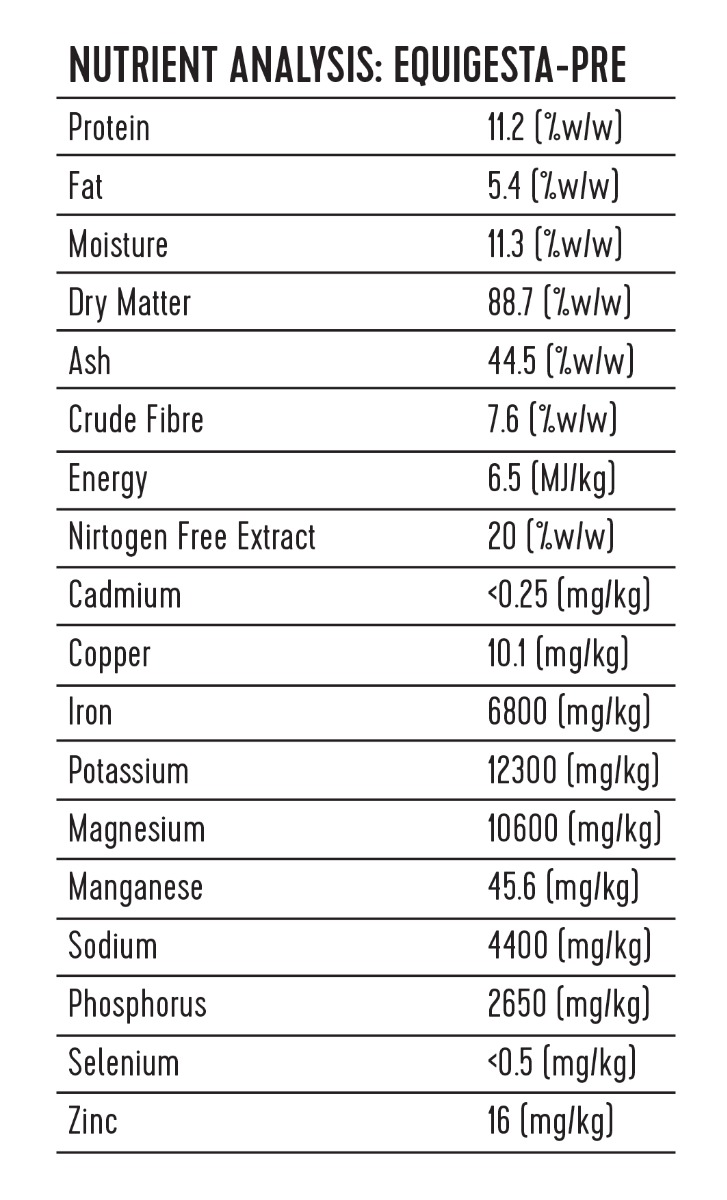Modern research now places the gut microbiome at the centre of metabolic, inflammatory, and immune-driven conditions, both in humans and animals.
In horses, the interaction between diet, forage quality, soil microbiology, gut integrity, and microbial diversity is increasingly recognised as a foundational determinant of long-term soundness and metabolic resilience in horses.

Equigesta-Pre
Product Information
Description
Equigesta-Pre contains a combination of pure herbal powders, brewer's yeast and bentonite clay. Traditionally this combination has been used to aid and promote beneficial intestinal microorganisms.
Our unique blend can be used daily as an equine prebiotic to support and stimulate the growth and activity of good bacteria in the digestive system.

How do I use it?
Loading dose of 10 grams per 100kg horse
With scoop being 40g- 1 scoop dose for 400kg horse.
Maintenance dosage After 2 weeks is 5g per 100kg
How is it taken?
What's in it?
Case Studies
I just wanted to let you know we have 2 horses on your products. They have been getting the McDowells herbs for a few months now. We are as is most of NSW in the middle of a terrible drought.
Both horses have just come back into work after about 6 weeks off. They both look simply amazing. Their coats are beautiful and shiny, their eyes bright and everything about them screams out that they are in prime condition!
Thank for helping us get them onto what was right for them.
They are both on Equigesta-pre and Mag-A-GG and Rosehip granules, starting in sept 2019.
Thank you again!
Cheers Kerrie Kidd
Related Posts
Disclaimer
FOR ANIMAL USE ONLY
Reviews
I have a Thoroughbred who is now eating HALF the hard feed he has usually needed to maintain his weight. His manure has gone from soft to formed - I was told this would never be possible, it was just his gut as a previous racehorse!
He has also been fussy when it comes to hay - this product has changed him. He is now more willing to eat hay, grass - not just only his feeds!
I tried so many gut products that I had to guess if they working. This one I can SEE the changes daily.
They recovered well following their treatment and I thought that they would benefit from a supplement and liked the natural supplement Equigesta-Pre. Gypsy had been cranky and girthy on the rare occasions that she was ridden and also suffers from tender feet and has had laminitis in the past. I noticed improvement in Gypsy only days after commencing the supplement as she seemed happier. They now have lovely silky coats, are calmer than beforel and most of the crankiness has gone (Gypsy). They are looking healthy and content.
So thank you for creating such a great product.
Kind regards,
Laura
________________________________________
